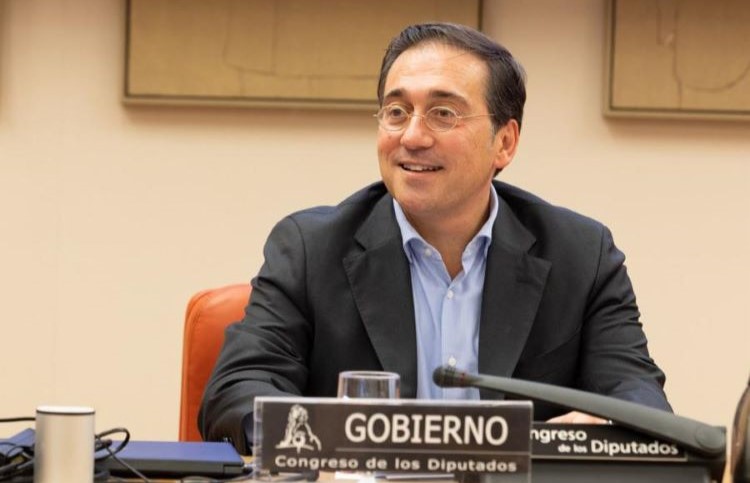The Diplomat
The Minister of Foreign Affairs, José Manuel Albares, insisted yesterday in Congress that Spain’s policy in the EU must be a “state policy” and therefore called for “consensus among the political forces” in view of the next Spanish Presidency of the EU, which will take place in the second half of 2023 “in a very volatile and complex context”.
“The success of the Presidency will be a success for everyone,” said Albares during his appearance before the Joint Congress-Senate Commission for the EU to report on the Government’s preparations, priorities and prospects for the Spanish Presidency of the Council of the EU.
According to Albares, “Spain will assume the Presidency in a very volatile and complex context” marked by the consequences of the war in Ukraine and the COVID pandemic, and “it will be one of the most important milestones for our country in many years”, since, he recalled, the last Presidency took place in 2010 and the next one will be in 2037.
For this reason, he warned, it is necessary to achieve “consensus among the political forces to establish the priorities and lines of work” of the Spanish Presidency so that the Spanish semester “is a success” and allows “Spain’s interests to be defended effectively”. An example of this “unity and consensus”, he added, is the report to be launched by the Joint Commission itself to prepare for the Spanish Presidency, in which the groups will be able to make their contributions.
European policy is “a State policy” and, therefore, it is necessary “to count on the participation of everyone, Spanish society, the public authorities, the General State Administration, the autonomous communities and the Spanish Parliament”, added Albares.
Likewise, Albares specified that the Spanish Presidency will be governed by “three priority lines of action”, economic recovery, energy security and strategic autonomy, and informed that, apart from the 23 meetings announced throughout Spain during the Presidency, another three have been scheduled in San Sebastian, Tarragona and Albacete. According to the minister, the communities that will host the most events will be Andalusia, Castile and Leon and Galicia, which are not governed by the PP.
For his part, the PP spokesman, Rubén Moreno, admitted that the Presidency constitutes “a great opportunity”, but warned against “any attempt at partisan use” by the Government – the European semester will take place in the middle of an election year, with regional and municipal elections in May and general elections at the end of 2023 – because this would cause “enormous reputational damage” for Spain.






